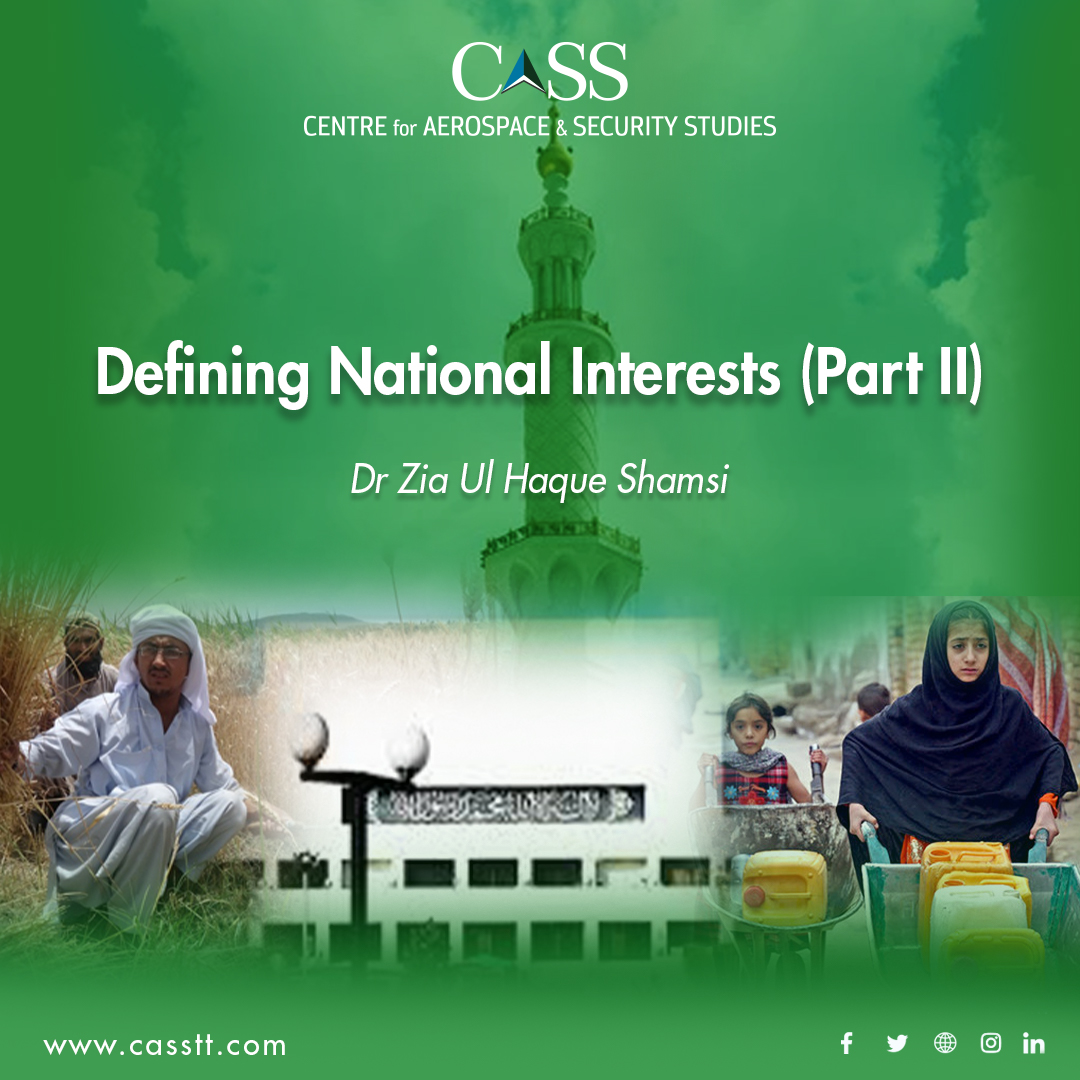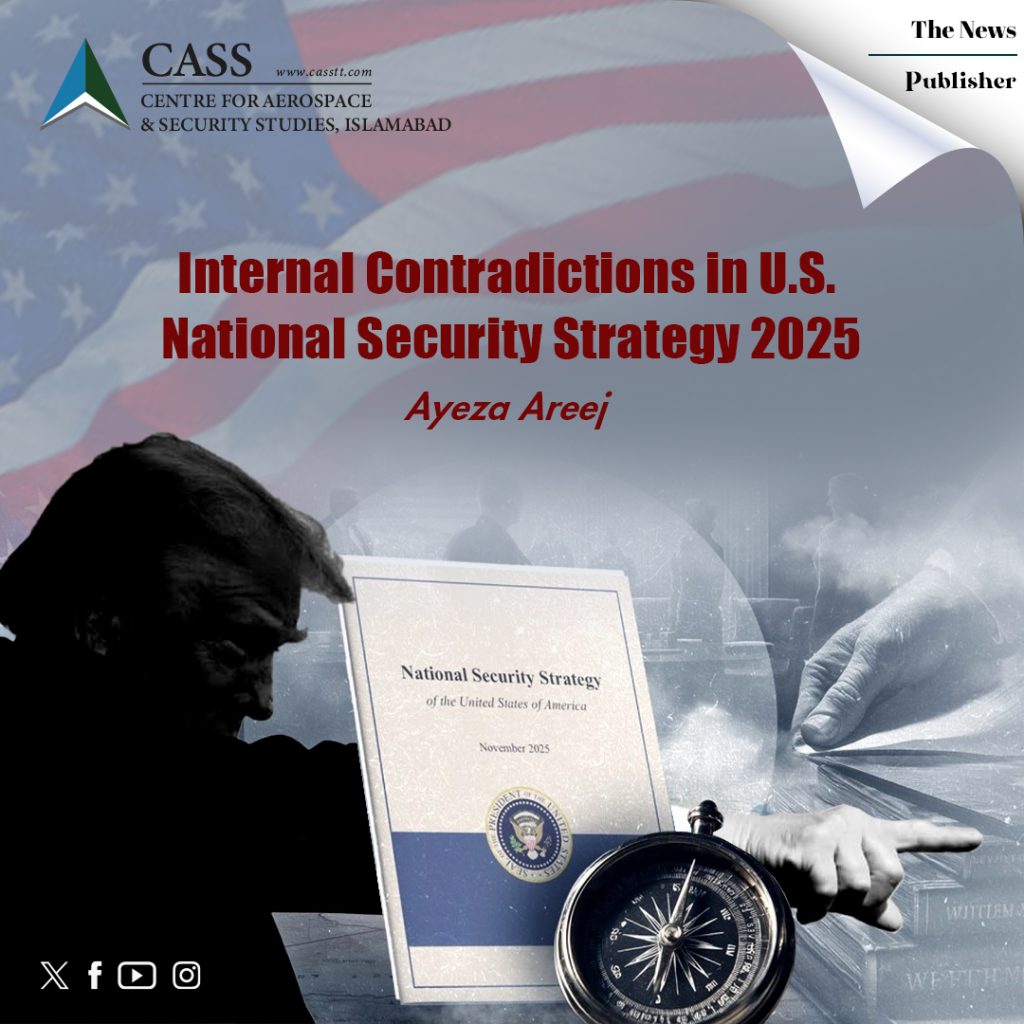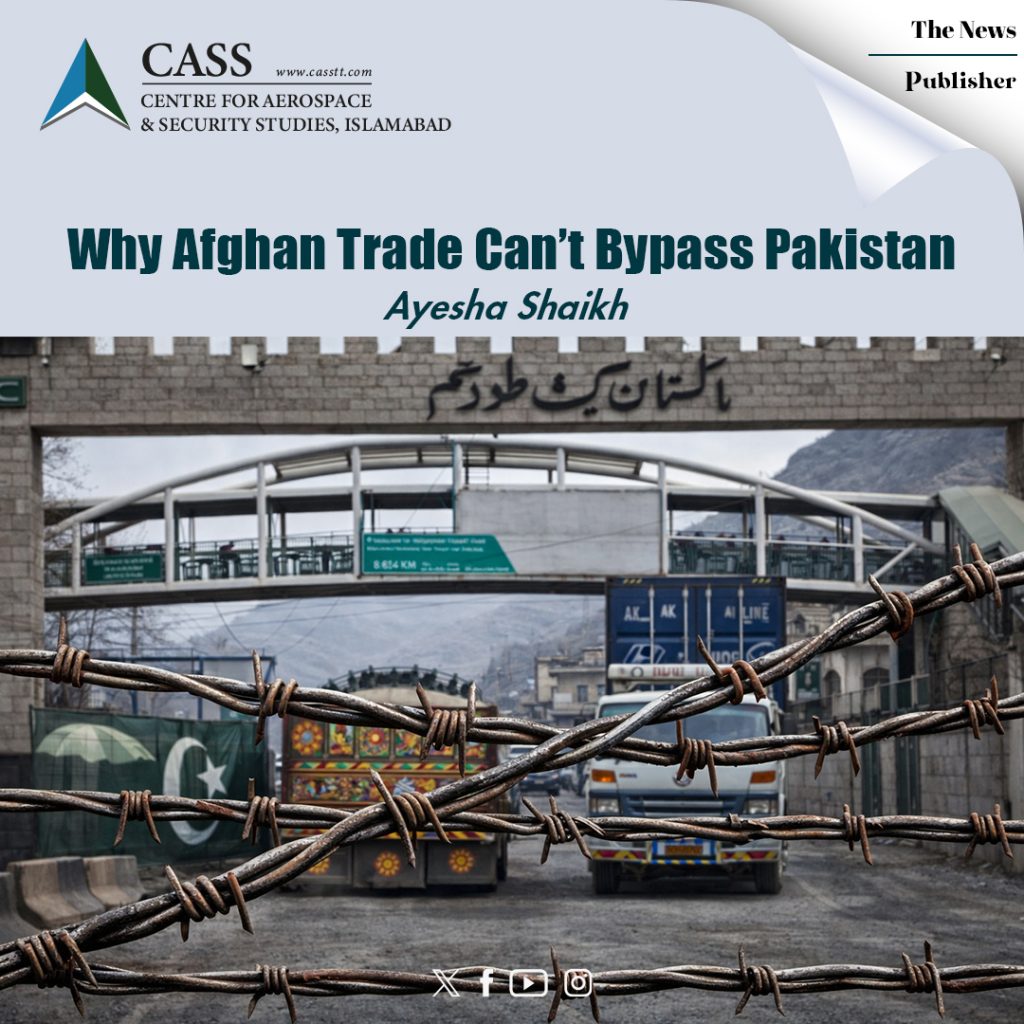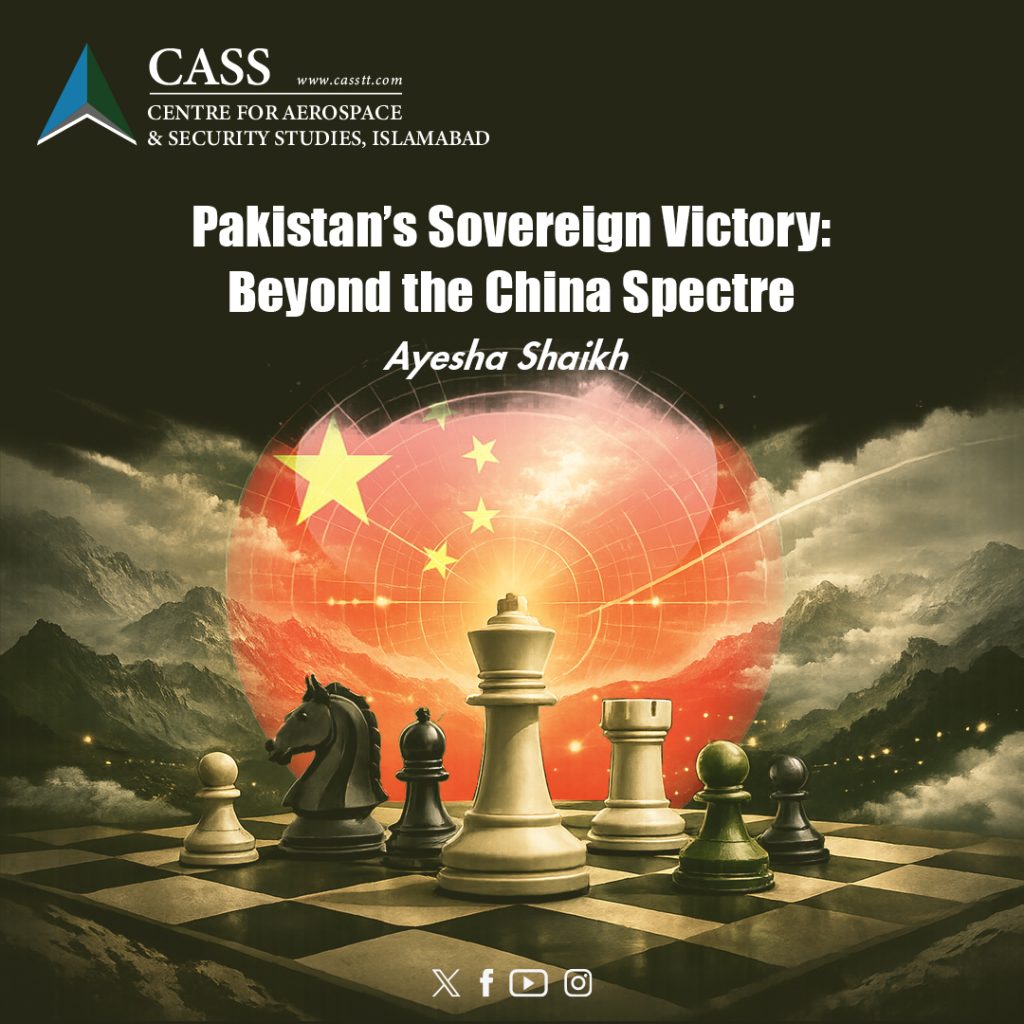In an article, “Defining National Values” published in Daily Times on August 15, I had insisted, “Non-adherence to the fundamental values that are professed and practised by all religions is one of the most pressing causes of societal degeneration in Pakistan.” Furthermore, I had suggested, “Unity, Faith, and Discipline would remain the cardinal principles for the nation, but it is time we add a few more aspects in view to recover the deteriorated state of our society, like the golden principles of Islam as our national values: Tolerance, Equality, and Social Justice.”
Consequently, I ventured into “Defining National Interests,” whose first part was published in Daily Times on August 22. I had dilated upon the significance of defining national interests, drawn from the national purpose and national values. Moving on, this article aims to carry the discussion forward and suggest a few of the most important national interests.
I have already placed territorial integrity and sovereignty, economic development, and adherence to core national values, to ensure national integration in a multi-ethnic society, in the category of survival or vital national interests. The most important interest for Pakistan must remain an effort to ensure Human Security, with all its elements as defined in the UNDP Human Report of 1994 which outlines seven essential elements of human security: Personal Security, Community Security, Health Security, Food Security, Environmental Security, Political Security, and Economic Security.
Economic Development as proposed as survival or the vital interest, is essentially required to support the cause of human security. The same is extremely important for the well-being of the people, also proposed as survival or vital interest. Economic development also holds the key to maintaining and sustaining strong Armed Forces that are nuclear-capable, and guarantors of territorial integrity and sovereignty of Pakistan.
Human Resource Development (HRD) falls under the most important national interest, primarily because without the capacity development of Pakistan’s young population, economic development would not be sustainable. The lack of universal education for the people of Pakistan has been one of the main factors that have led the country to the bottom of nearly all Human Development Indices. If HRD becomes the most important national interest, then education for all has to be in the same category of national interests.
The significance of political stability in any state cannot be over-emphasized. Ideally speaking, in Pakistan’s case, it should be part of vital national interest. Pakistan’s history is replete with chaotic political happenings, including violent movements, election engineering, and even military takeovers. At the time of this writing, Pakistan is going through testing times. The economy is in the doldrums primarily due to political instability because of which international rating agencies have downgraded Pakistan’s future economic outlook. Though Pakistan is under the International Monetary Fund (IMF) programme, investor confidence has considerably declined due to political unrest in the country.
Pakistan is one of the few countries that has suffered immensely due to climate change. With agriculture as its backbone to feed over 220 million people, Pakistan has gone from a water-sufficient state to becoming a water-scarce state in little over two decades. Lack of water reservoirs, deforestation, and waste of water due to casual and cultural leanings, Pakistan is facing the challenges of food security as well as water security at the same time and that is primarily due to the effects of climate change besides other avoidable reasons. Therefore, climate change must find a place in the category of most important national interests for Pakistan.
Lack of tolerance in society has led to rising extremism and violent reactions. The existing ethnic and sectarian fault lines are fully exploited by the enemy under the cloud of hybrid war. While tolerance has been suggested to be added as part of our national values, the fight against extremism must find a suitable place on the list of the most important national interests. This would not only help in ensuring personal and societal security, but also ensure much-needed internal security of Pakistan.
Due to paucity of space, some other most important and important national interests like foreign policy, lack of governance, social justice, non-implementation of legal instruments etc., would be discussed soon.
(To Be Continued)
Dr Zia Ul Haque Shamsi is the author of ‘Nuclear Deterrence and Conflict Management between India and Pakistan’ and ‘South Asia Needs Hybrid Peace.’ He is presently working as Director (Peace and Conflict Studies) at the Centre for Aerospace & Security Studies (CASS), Islamabad, Pakistan. The article was first published in Daily Times. He can be contacted at: [email protected]





